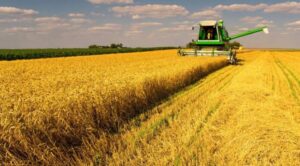
Let’s track the prices as of the end of June 2025 for the main grain and oil crops exported from Ukraine, as well as fluctuations in their value on the world market.
The price of wheat (France, FOB) was 235 USD/t, according to market operators on June 25, 2025. This is 1 USD less than last week, 6 USD more than the previous month, and 3 USD more than the previous year. The price of wheat (Ukraine, 2nd grade, CPT) for the central regions (June 26) was 192 USD/t. This figure remained unchanged during the week, decreased by 15 USD over the month, and increased by 45 USD over the year. For ports, the amount was 206 USD/t, which is 3 USD less than a week ago and 18 USD less than a month ago, but 19 USD more than a year ago.
According to the International Grains Council, the price of corn (USA, FOB) as of June 25 was 192 USD/t. This is USD 8 less per week and USD 16 less per month, but USD 3 more per year. The price of corn (Ukraine, CPT) on June 26 for the central regions was USD 204/t. It did not change during the week, but decreased by USD 4 per month and increased by USD 73 per year. For ports, it was 216 USD/t (also unchanged from the previous week, down 16 USD from the previous month, and up 3 USD from 2024).
“Let’s pay attention to the forecast for global corn production in 2025/26 MY. It has been reduced by 1 million tons to 1,276 million tons, compared to 1,225 million tons in the current season. However, the forecast for global consumption has been increased by 1 million tons to 1,269 million tons. Therefore, the estimate of final corn stocks has been lowered by 2 million tons (to 282 million tons). This will exceed the current season’s figure by 7 million tons,” said grain market analyst Alexander Korenitsyn.
As for the price of barley (France, FOB) as of June 25, it stood at USD 216/t. This is USD 6 less than a week ago and USD 5 less than a month ago, but USD 11 more than a year ago. Let’s analyze the price changes for barley (Ukraine, CPT). As of June 26, the price was (central regions) – 171 USD/t. This is 3 USD more per week and 46 USD more per year, but 30 USD less per month. For ports, the price is 188 USD/t, which is 6 USD more per week, 40 USD more per year, but 2 USD less per month.
Prices for major grain and oil crops exported from Ukraine, end of June 2025
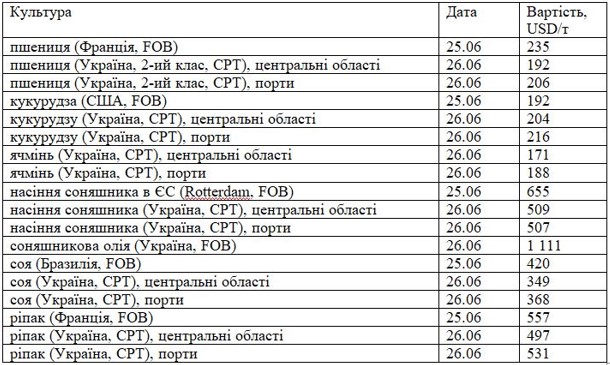
According to Oleksandr Serhiyovych Korenitsyn, the price of sunflower seeds in the EU (Rotterdam, FOB) as of June 25 was USD 655/t. The changes are as follows: +5 USD per week, -14 USD per month, and +170 USD per year. The price of sunflower seeds (Ukraine, CPT) on June 26 (central regions) was 509 USD/t. This is 8 USD less per week and 16 USD less per month, but 109 USD was added to the price per year. For ports, the cost is 507 USD/t. The price fell by 6 USD per week and rose by 9 USD per month and 148 USD per year. A ton of sunflower oil (Ukraine, FOB) costs 1,111 USD as of June 26.
The cost increased by $8 per week and by the same amount per month.
The calculation of price fluctuations for soybeans is based on its cost as of June 25 (Brazil, FOB) – $420/t. It decreased by $10 per week and by $16 per year, but increased by $15 per month.
“The price of soybeans (Ukraine, CPT) in the central regions was 349 USD/t on June 26, which is 8 USD less than a week ago, 4 USD less than a month ago, and 23 USD less than in 2024. The price for ports is 368 USD/t. It decreased by 14 USD, 13 USD, and 10 USD over the week, month, and year, respectively,” said analyst Alexander Korenitsyn.
The price of rapeseed (France, FOB) on June 25 was $557/t. Price changes: down $9 per week, up $7 per month, and up $55 per year. The cost of rapeseed (Ukraine, CPT) on June 26 for central regions is 497 USD/t (up 106 USD per year), for ports – 531 USD/t (up 110 USD per year).
agricultural sector, COST, DOLLAR, EXPORT, HARVEST, Oleksandr Korenitsyn, PORT, PRICE, SOYBEANS

Ukraine is increasing exports of sunflower oil to India. In July 2025, it supplied 78,000 tons to this country, which is 57% more than in June, according to the analytical agency UkrAgroConsult.
The agency cited Indian sources, according to which Ukrainian oil accounted for 39% of total imports of this product to India in July, which amounted to 200,000 tons. Thus, for the first time since the start of the war,
Ukraine has overtaken Russia, whose exports to India in this segment amounted to 49,000 tons, or 25% of the total volume imported into the country.
“In recent seasons, Russia has dominated the Indian sunflower oil market, while Ukraine’s share has fluctuated between 13% and 34%. However, in the second half of the 2024/25 season, Russian producers reduced production volumes due to low profitability, which led to a decrease in supply on foreign markets. An additional factor was the non-zero export duty on Russian oil,” experts explained.
According to analysts, Ukraine exported 767,000 tons of sunflower oil to India between September 2024 and July 2025, which is 55% more than in the same period of the previous season.
“This figure is a record since 2022, confirming India’s position as a key importer of Ukrainian oil. The growth in exports reflects the stable recovery of Ukraine’s position in the global market,” UkrAgroConsult concluded.

In 2024, Ukraine entered the TOP 3 global leaders in honey exports and ranked third with 85.8 thousand tons, according to the Ukrainian Agribusiness Club (UABC).
Analysts noted that China and India ranked first and second among the world’s top five honey exporters last year, with 169,600 tons and 94,800 tons, respectively. Argentina (78,100 tons) and Vietnam (48,200 tons) ranked fourth and fifth.
“Honey is probably one of the few components of Ukrainian agricultural exports that has not been affected by the blockade of seaports by Russian troops, as its main consumers are European countries. Previously, the duty-free quotas for this product, which were allocated under the Association Agreement with the EU, were exhausted by Ukrainian exporters in a matter of days — sometimes as early as January 4. After the European Union abolished duties and fees on Ukrainian exports, Ukrainian beekeepers had profitable export opportunities,” the experts explained.
According to their information, the largest buyers of Ukrainian honey in 2024 were Germany (18.9 thousand tons), the United States (12.1 thousand tons), Poland (9.7 thousand tons), France (9.6 thousand tons), and Belgium (7.1 thousand tons). In addition, Ukrainian honey was present in other markets, namely Turkey, Great Britain, Japan, Switzerland, Canada, Qatar, Jordan, etc.
However, in 2025, the EU reintroduced quotas on Ukrainian honey, creating additional barriers to exports.
“Although the quotas are significantly higher than before, they still do not cover Ukraine’s entire export potential. At the same time, this is an important step that helps Ukrainian producers remain competitive in the European market, which remains key for the sale of Ukrainian honey,” the UCA concluded.
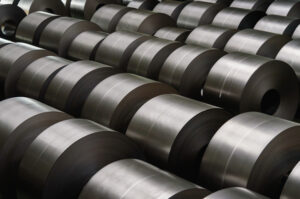
Imports of tin and tin products rose by 52.2% to $2.338 million (in July – $410,000), while exports of tin and tin products in the first seven months of 2025 amounted to $101,000 (July – $16,000) compared to $331,000 in the first seven months of 2024.
Tin is mainly used as a safe, non-toxic, corrosion-resistant coating in its pure form or in alloys with other metals. The main industrial applications of tin are in white tin (tin-plated iron) for the manufacture of food containers, in solders for electronics, in domestic piping, in bearing alloys, and in coatings made of tin and its alloys. The most important alloy of tin is bronze (with copper).
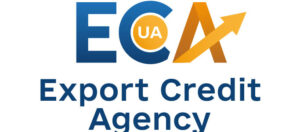
The Export Credit Agency (ECA) supported UAH 1.49 billion of exports in July 2025, insuring eight loans totaling UAH 359.14 million issued by Ukrainian banks to entrepreneurs for the fulfillment of export contracts.
According to the ECA website, the agency’s largest partners among banks during this period were Ukrgasbank (UAH 1.09 billion in supported exports and loans worth UAH 49.62 million), Bank Alliance financed exports worth UAH 153.13 million with loan agreements totaling UAH 239.51 million, and Creditwest Bank financed exports worth UAH 146.93 million and provided loans worth UAH 70 million.
In July, the ECA’s services were most used by exporters from Ternopil (UAH 1.03 billion in supported exports), Cherkasy (UAH 156.69 million), Mykolaiv (UAH 153.13 million), and Odesa (UAH 88.25 million) regions. In Kyiv, support amounted to UAH 41.87 million, and agreements were also signed in the Rivne, Dnipropetrovsk, and Chernihiv regions.
The largest contracts for the period were concluded for the supply of Ukrainian goods to Austria (UAH 1.03 billion), Lithuania (UAH 235.18 million), as well as to Israel, Jordan, the United States, Italy, the Netherlands, Germany, Poland, Moldova, and Georgia. The most popular export commodity groups were the production of oils and animal fats (UAH 1.03 billion), processing and preservation of fruits and vegetables (UAH 153.13 million), wholesale trade in seeds and animal feed (UAH 146.93 million), production of chains and springs (UAH 88.25 million), and pharmaceuticals and materials (UAH 41.87 million).
The Export Credit Agency of Ukraine (ECA) is a state institution that supports non-raw material exports by insuring the risks of enterprises and banks. The agency insures foreign economic contracts, export credits, bank guarantees, and investment credits against military risks.
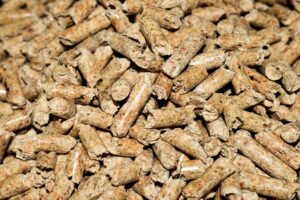
Agroholding KSG Agro has completed the harvest of spring barley and wheat from an area of 7,604 thousand hectares, of which 6,428 thousand hectares were allocated for wheat and 1,176 thousand hectares for spring barley, the press service of the agroholding reported.
“This year’s summer harvest in our Dnipro region was difficult. Weather conditions, including the effects of last year’s drought, took their toll. (…) We plan to use the harvested grain as ingredients for mixed feed for our pig farm. Part of it will be sold under export contracts,” said Sergey Kasyanov, Chairman of the Board of Directors of KSG Agro.
The agricultural holding specified that during the summer harvest, 18 John Deere and Claas Lexion combine harvesters and 60 trucks were used on KSG Agro’s fields.
KSG Agro is a vertically integrated holding company engaged in pig farming, as well as the production, storage, processing, and sale of grain and oilseeds. Its land bank in the Dnipropetrovsk and Kherson regions is about 21,000 hectares.
According to KSG Agro, it is one of the top five pork producers in Ukraine.
In 2023, the agricultural holding began implementing a network-centric strategy, under which it will move from developing a large location to a number of smaller pig farms located in different regions of Ukraine.